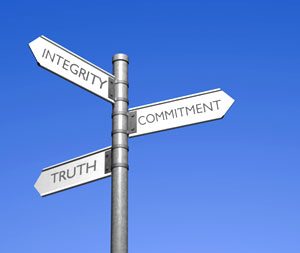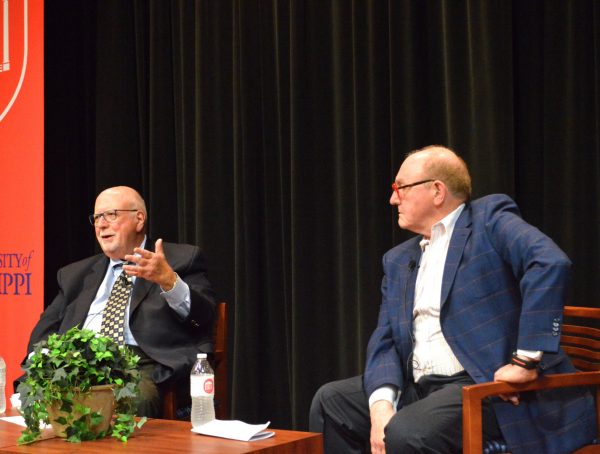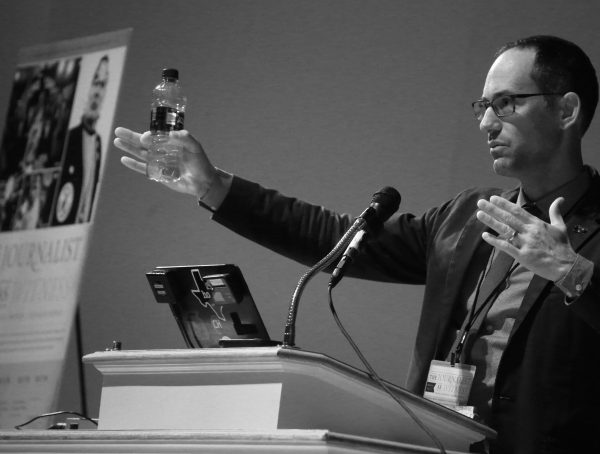 After more than a year of work, NPR has issued a revised ethics handbook to provide guidance in sticky situations. NPR has weathered quite a few of those recently, from the firing of commentator Juan Williams to the decision to stop distributing an opera program because of the host’s political involvement. Ironically, the guidelines came out just as one of the public radio network’s leading member stations had an ethics meltdown of its own.
After more than a year of work, NPR has issued a revised ethics handbook to provide guidance in sticky situations. NPR has weathered quite a few of those recently, from the firing of commentator Juan Williams to the decision to stop distributing an opera program because of the host’s political involvement. Ironically, the guidelines came out just as one of the public radio network’s leading member stations had an ethics meltdown of its own.
Jim Asendio, former news director at WAMU in Washington, DC, quit last week in a dispute over what he described as a breach in the firewall between the newsroom and funders. According to Asendio, management asked some WAMU journalists to meet with major donors at a station-sponsored event and to report back to the development office on their “one-on-one” conversations.
“I do not believe that reporters should be exposed to the real or perceived influence of individuals or foundations who fund the work of the newsroom,” Asendio wrote in a comment on a news story about his sudden departure.
The day after Asendio resigned, WAMU hosted its planned “thank you” breakfast for about 30 donors at which several journalists participated in a panel discussion. Communications manager Benae Mosby says there was no “formalized” one-on-one time included in the program, but confirmed to NewsLab that participants had indeed been asked to report back.
The email sent to participants in last week’s event was a request to share any information they may have learned — either during the Q&A or in any brief interactions with anyone they may have greeted just prior to or immediately following the panel — that might help the station get a better idea of who our donors are, their interests, and why they choose to support our programs.
That’s precisely what Asendio objected to. “Imagine if a donor said, ‘I’m keen on [a topic].’ You don’t think that would influence what [reporters] do?” he told me. “Journalists should not feel prevailed upon.” Mosby maintains that the event did not violate station policy about contact between donors and journalists, which reads:
WAMU maintains a firewall between journalists and funders; journalists may not — and do not — discuss coverage planning with grant-making officials or individual donors. It is senior management’s responsibility to manage contacts for their respective divisions with funders. Any one-on-one, private contact between a non-management journalist and a funder has high potential for putting that journalist in an awkward position and communicating the wrong message to the funder, and there is no situation where this should be allowed to occur.
Because the contact at the breakfast meeting was not “private” and did not involve “coverage planning,” WAMU may be technically correct that its policy was not breached. But asking journalists to find out what funders are interested in appears to fly in the face of the section on independence in the new NPR ethics handbook:
…we may be called upon to talk about our work with those who might support it, whether over the air during a pledge drive or in person during a meeting with prospective funders. But in all our interactions with potential funders, we observe this boundary: We’re there to tell our story, not to discuss the agendas of our supporters….NPR journalists interact with funders only to further our editorial goals, not to serve the agendas of those who support us.
Clear as day? Or does this open a door that had been closed? Consider what the old NPR Ethics Code said about underwriting and grants:
While staff may end up talking to experts and officials who work at foundations that fund us (and their grantees), we may not discuss coverage planning with grant-making officials.
The old policy allowed journalists to talk with people who worked for funders; the new policy suggests that it’s now OK for NPR journalists to meet directly with funders. That may sound like a distinction without a difference but to people like Jim Asendio it’s significant, especially in light of recurring threats on Capitol Hill to cut off federal funding for NPR. “It is a slippery slope,” he says. “Where do you draw the line?”









3 Comments
Good to know about it .
More and more, Public radio stations are being taken over by the same busines clique which now owns the public airwaves. They look toward marketing instead of good journalism. NPR now gives cutesy names to issues reporting..lilke “Plant Money”..which makes the once-great NPR sound like Newscenter 44.. The stations are paying high salaries..(some close to 7 figures) which means the contributions go to those salaries before a pnny is spent on programming. The basic greed factor plays into the hands of NPR and Public Radio opponents and will eventually kill it. I send money to 2 stations which I still trust. The big ones like WAMU and WNYC in NY , phui !!